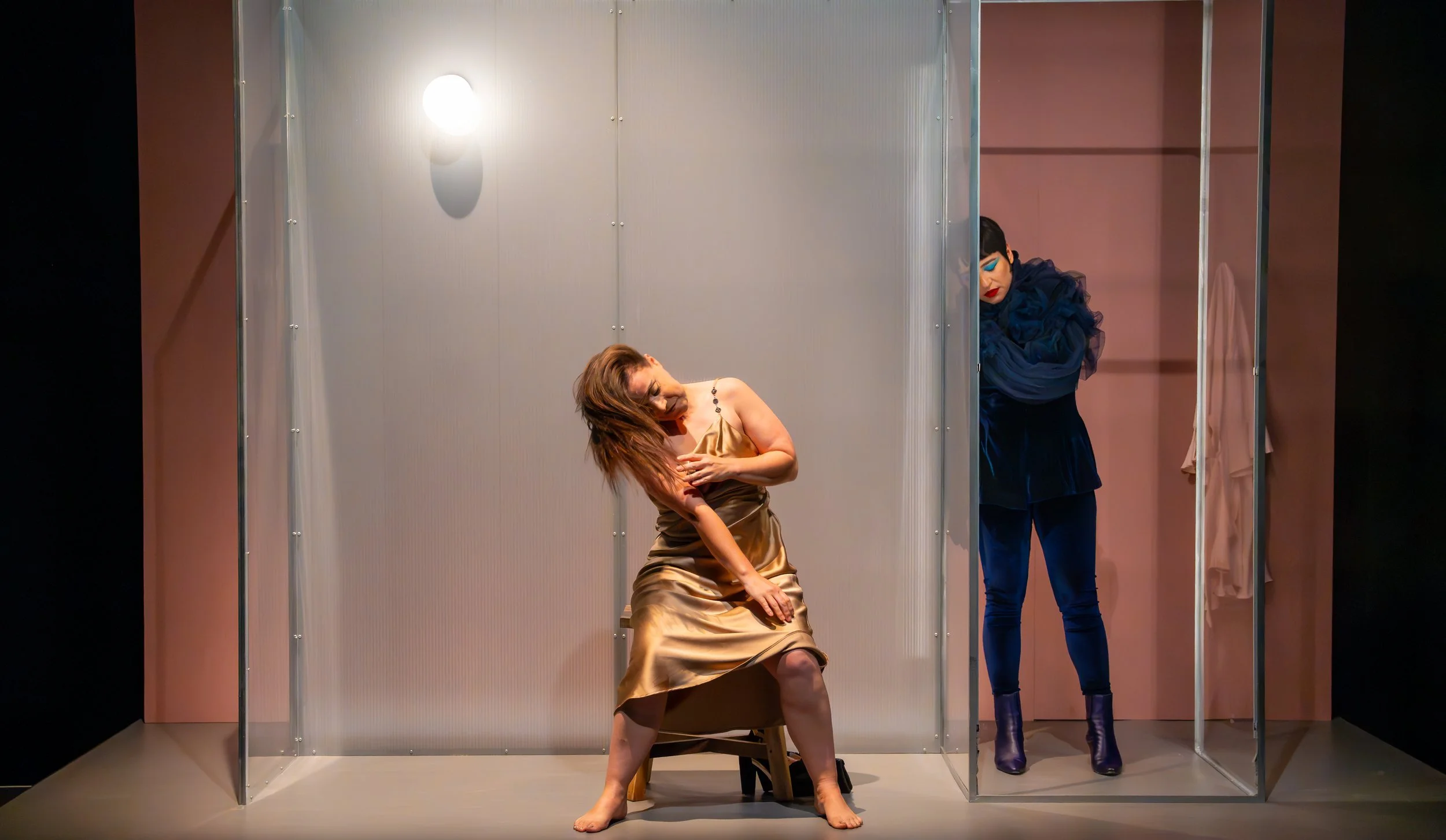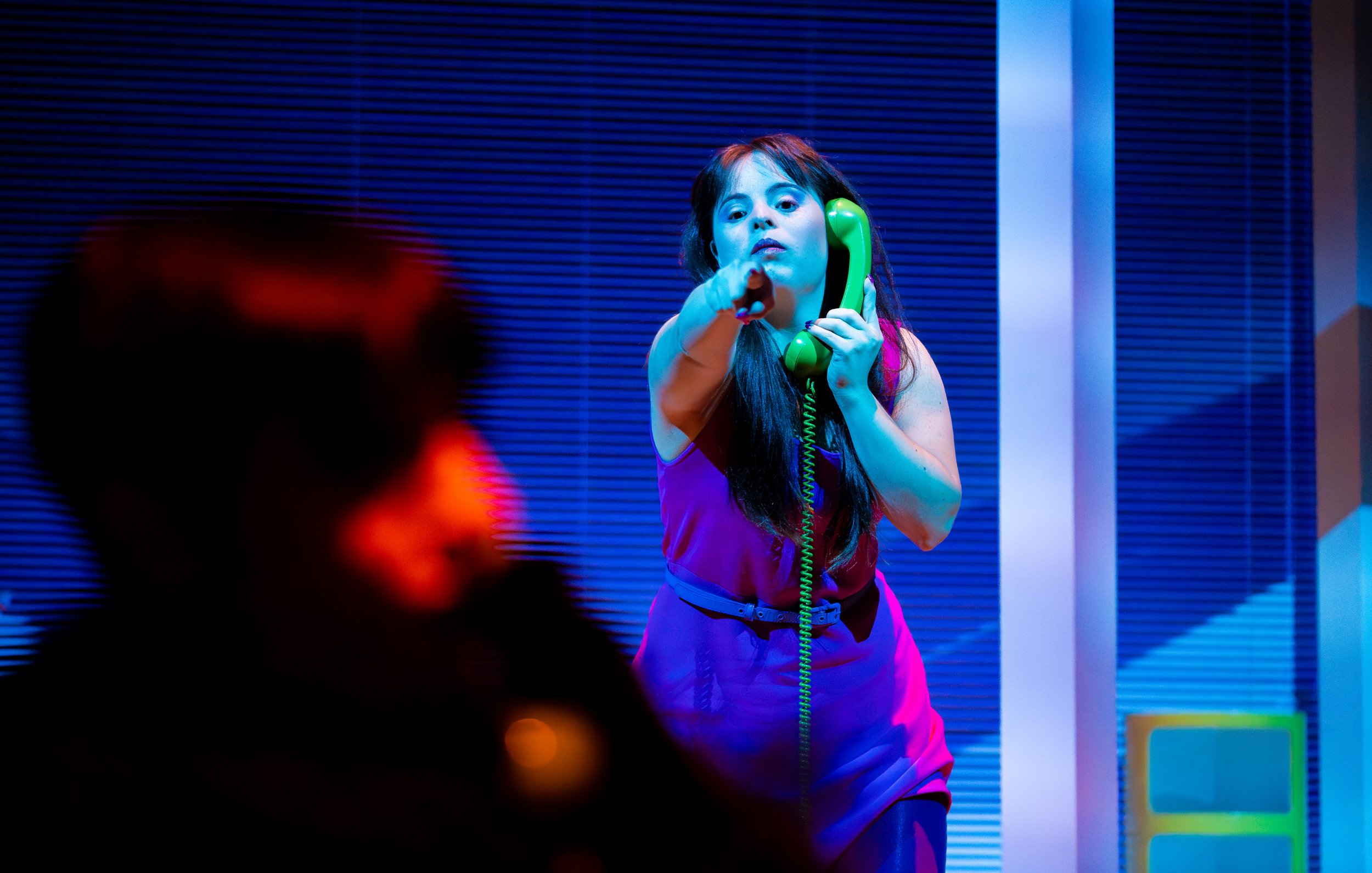Private View | Restless Dance Theatre
All images: Matt Byrne
What are you allowed to dream?
Errollyn Waller, the first Black woman to be appointed as the Master of the King’s Music, originally aspired to be a ballet dancer. In an interview recorded earlier this year, she said she cried her eyes out when she was told her family wouldn’t send her to ballet school because “there had never been a Black ballerina”.
When I heard that interview, I imagined an entire alternate universe where Errollyn Walker was known as one of the contemporary era’s most celebrated dancers instead of one of its most groundbreaking composers. When dreams are taken from those around us, all of our worlds are irrevocably reshaped.
Private View, a vibrant dance theatre work from Restless Dance Theatre, is concerned with many things. But, perhaps most of all, it’s about allowing the dreams of disabled people room to live and breathe. While the work is thematically organised around ideas of sex and romance, it inevitably speaks to even broader ideas of agency, life, and self-determination.
After all, if we are not allowed to dream even of love and lust, how much life will we ever truly be permitted?
Fortunately for audiences, Private View is not quite as laboriously ponderous as my own associated prose. It’s light, funny, and human. In moments, it also conveys heartache, rage, loneliness, and many other more complicated emotions. Overall, though, it’s a kind-hearted cascade of layered dreams and visions.
All images: Matt Byrne
The work provides insight into four rooms, presented as four discrete sets around the performance space. Performer Carla Lippis, through song and narration, guides audience attention to each room and gently brings us into each experience. In one room, a performer envisages their ideal date. In another, a solo dance of apparent heartbreak and sensuality.
The technical accomplishment of the work can’t be overstated. Reflecting my own bias towards such things, I was especially delighted by the astounding use of sound and music. However, an attentive look at any aspect of the production would thrill any other type of aficionado. The sets, lighting, costumes - all are fantastic; both expressive and restrained. The performers, similarly.
But, I think my favourite parts came between the elements. In any work playing with marginalisation and identity, there’s always a temptation to present an extreme and monochromatic portrait. Sometimes, that can mean a work insists on showing only the worst experiences of a particular identity. Sometimes, it can lead to a work presenting only the best.
Private View isn’t interested in that type of monochrome.
And, while it always treats its audience with care, it also enjoys teasing and prodding them into other perspectives. When a disabled performers asks an audience member on a date, it knowingly plays with narratives of disabled people being objects of pity. Then, the work shatters that trope with the performer rejecting their audience member and slamming the phone down.
Those were the moments I adored most in the work. So often, discomforting an audience is treated like an approach that can never be modulated or deployed compassionately; performance works that shock an audience as aggressively and confrontationally as possible and congratulate themselves on the condemnation.
All images: Matt Byrne
Private View has more fun with it. One of the work’s best routines is two visibly disabled performers trying to make out together while a seemingly abled minder does everything to separate them. Superficially, it’s a funny and relatable experience for all audiences. Simultaneously, it speaks to the infantilising and policing of disabled peoples.
It’s light-hearted and human. It’s also pointed and critical. And, somehow, neither approach ever compromises or weakens the other. If absolutely nothing else, that’s some serious craft.
And, it’s ultimately what makes Private View so rewarding.
When I was deciding whether or not to transition genders, I had to reckon with my fear and belief that, if I did, I would never be found physically attractive again. In the end, I decided I didn’t care. I’d live without love if I could live as myself. I found it impossible to dream of a world where trans women were objects of genuine love, lust, and affection.
Private View is a work that encourages us to dream wildly and let others dream wildly of the love, desire, kindness, lust, and affection we all deserve. It shows us its dreams and gently invites us to remove the barricades and barriers we have within our own. And, with every dream it liberates, I know it changes our world for the better.
It’s just bloody lovely, is what it is.
‘Private View’ plays at The Brisbane Powerhouse from 18-21 September as part of the 2024 Brisbane Festival.


